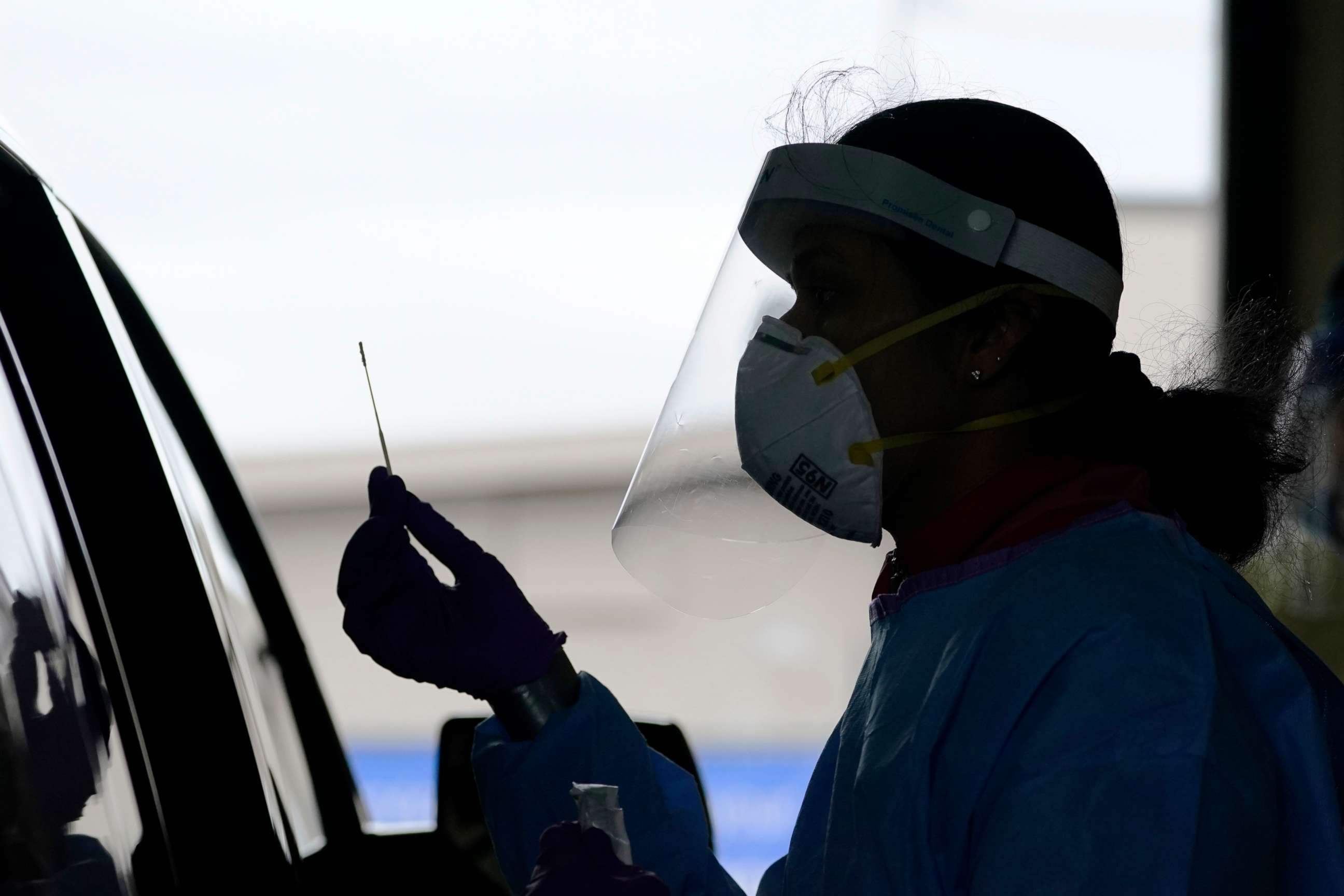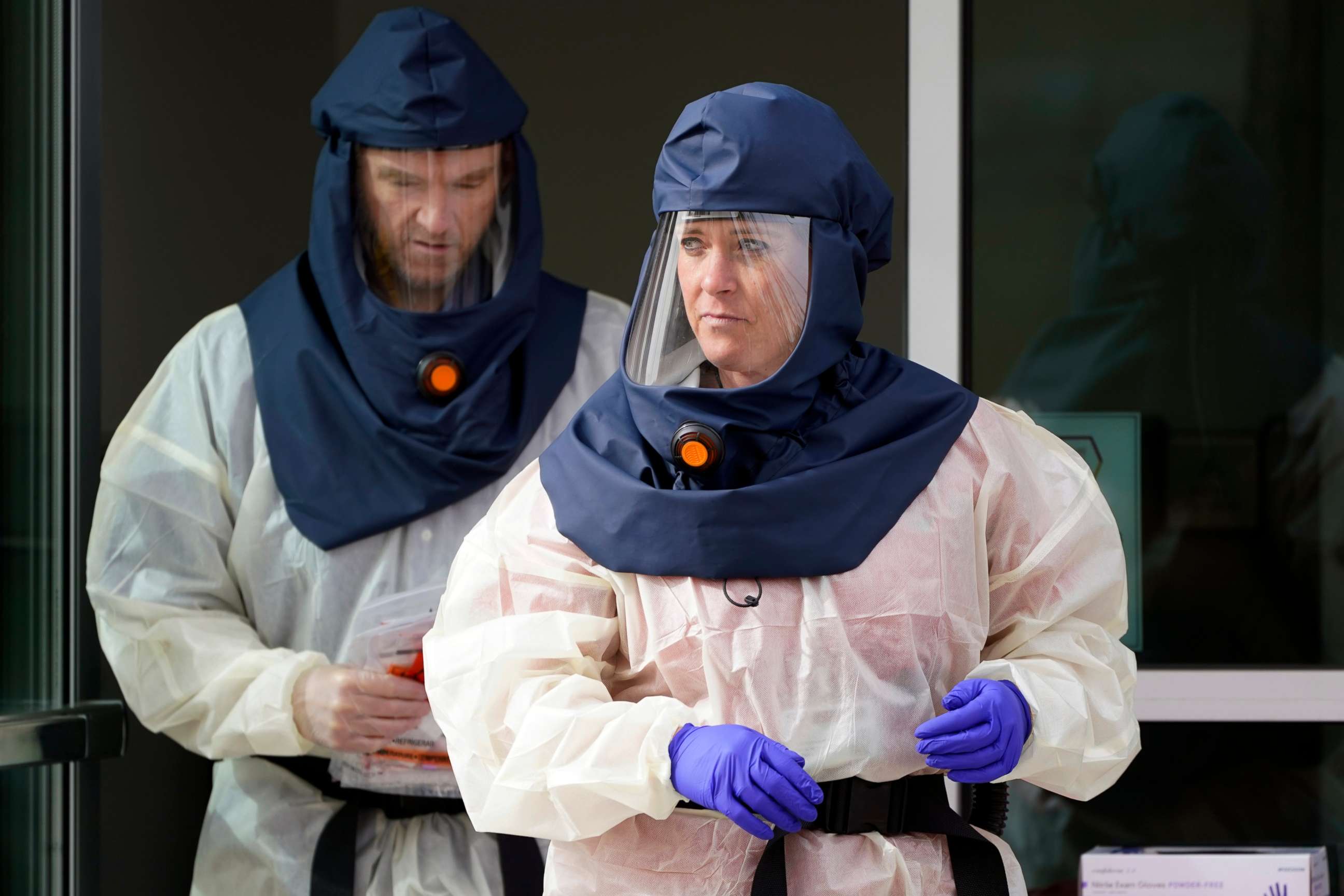Analysis shows COVID-19 positivity rates rising in 37 US states
An ABC News analysis of COVID-19 trends across all 50 U.S. states as well as Washington, D.C., Puerto Rico and Guam found there were increases in the daily positivity rate of COVID-19 tests in 37 states.
The analysis also found increases in COVID-19 hospitalizations in 35 states plus Puerto Rico and Guam, as well as increases in daily COVID-19 death tolls in 27 states.
Meanwhile, case numbers are higher -- a daily average of at least 15 new cases per 100,000 people over the past week -- and staying high in 33 states plus Puerto Rico and Guam, and case numbers are lower -- a daily average of under 15 new cases per 100,000 people over the past week -- but are going up in nine states.
Six states hit a record number of current hospitalizations in a day, while 16 states saw a record number of current hospitalizations in a week. Twenty states plus Puerto Rico reported a record number of new cases in a week. Six states reached a record number of new deaths in a week.

The United States is rapidly approaching an average of 70,000 new cases a day, the highest it has been since the start of the pandemic. Just a week ago, the country was averaging 57,000 new cases a day. That average has doubled in the last six weeks. Friday and Saturday marked the two highest days on record for the country, with a combined 165,678 new cases over the 48-hour reporting period.
The month of October is now on track to become the second-highest month on record for COVID-19 cases in the United States. Nearly 1.4 million daily cases have been reported since Oct. 1, and nearly half a million of those cases have been reported in the last seven days alone.
Midwestern states continue to struggle, reaching record-high daily figures on Saturday. But the Midwest is not alone. Since Oct. 3, the seven-day average of new cases in the South have risen by 45%, and the West is now reporting daily case numbers not seen since mid-August.
Even the Northeast, which had consistently reported improving trends after COVID-19 struck in the spring, has seen a concerning resurgence of the virus. Rhode Island hit an all-time high of new cases last week, and the average rate of positivity has now surpassed 5% in Massachusetts.

The number of COVID-19 patients hospitalized nationwide continues to hover around 41,000. Just in the last month, current hospitalizations have increased by 40%.
In the Northeast, hospitalizations are nearing the 4,000 mark. The number of patients hospitalized in the Midwest is now the highest on record.
The trends were all analyzed from data collected and published by the COVID Tracking Project over the past two weeks, using the linear regression trend line of the seven-day moving average to examine whether a state's key indicators were increasing, decreasing or remained flat.
ABC News' Benjamin Bell, Brian Hartman, Soorin Kim and Arielle Mitropolous contributed to this report.




